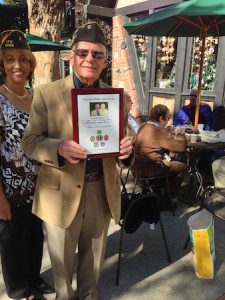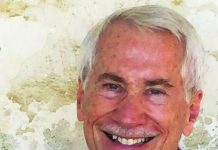By Arnold Silverman
 Feb. 18 is Presidents Day. My favorite presidents were George Washington and Abraham Lincoln and of the two I’d say Washington was No. 1. Lincoln was an extraordinary man, but Washington “wrote the book” on American presidential leadership.
Feb. 18 is Presidents Day. My favorite presidents were George Washington and Abraham Lincoln and of the two I’d say Washington was No. 1. Lincoln was an extraordinary man, but Washington “wrote the book” on American presidential leadership.
He essentially created the federal government much as we know it today. He created the Supreme Court (then with six judges) and the judiciary system. For his administration he created the offices of secretaries of state, treasury and war, the postmaster general and the attorney general. He backed Alexander Hamilton (then secretary of the treasury) in establishing a national bank and Hamilton’s key strategy of having the federal government assume the war debt of the former colonies, resulting in the widening of the influence and power of the federal government and uniting the states into one nation.
He was a remarkable man of an extraordinary generation. He was not an intellectual like Benjamin Franklin, John Adams, Thomas Jefferson, or James Madison. Compared with most of the other founders, he was not well educated. He attended school for only about five years. He was neither a polished writer nor speaker, and he lacked the charisma and charm of many of his successors. Also, in spite of his impoverished army ultimately defeating the British, he was not a traditional military hero who won spectacular victories during the war.
For me his greatness stemmed principally from his character. Again, the only other American president who has been so highly extolled for his character is Abraham Lincoln. From Washington’s presidency on, all presidents ultimately have been measured not by the size of their electoral victories or the success of their legislative programs, but by their moral character. It was his character and determination that helped sustain his troops throughout the Revolutionary War, and it was that character and the respect and trust of him that convinced delegates to the Constitutional Convention to make the presidency as strong as it is and to finally ratify the Constitution.
He had a reputation for integrity and honor, dedication to duty and his country, and remaining above the political fray. This was demonstrated when he, as Adams after him, refused to campaign for the presidency. Both strongly believed that voters should choose and essentially draft their representative for their virtue and leadership qualities without their campaigning for the office.
As president, Washington strove to establish public confidence in the new government and to demonstrate that political leaders could act virtuously. He believed his character was much more important to the success of the republic than his policies, and he spent much of his adult life creating and preserving a reputation for integrity and trustworthiness. It was his character that reassured the Founders that they could create a workable republic. His example of self-sacrifice, discipline, virtuousness and moral goodness helped elevate the status of the presidency.
At the start of Washington’s administration, John Adams, then vice president, became deeply involved in a month-long Senate controversy over the official title of the president. Adams favored grandiose titles such as “His Majesty, the President” or “His High Mightiness, the President of the United States and Protector of Their Liberties.” The plain “president of the United States” eventually won the debate. As for Washington, he considered his being called an “honest man” the most enviable of all titles.
His refusing a third term was momentous for the new nation for it confirmed that it would not be governed by a monarchy or dictatorship. In spite of daily attacks by opposition Whigs (some vicious) led by Jeffersonians, Washington was immensely popular and could have stayed on in office for as many terms as he wished. When King George III asked what Washington would do after winning independence, the response was, “They say he will return to his farm.” “If he does that,” the king said, “he will be the greatest man in the world.”
In short, his leadership guaranteed the survival of the fledgling country and set a standard for future presidents.
Arnold Silverman, commander of the Laguna Beach VFW Post 5868, served in the Korean War as forward observer for a mortar platoon in Northeastern Korea.




